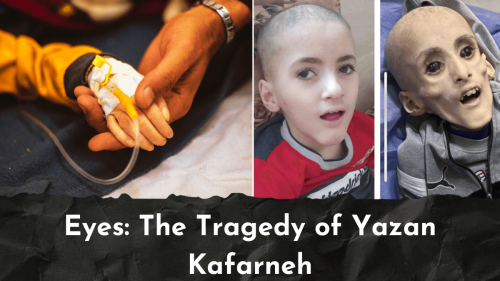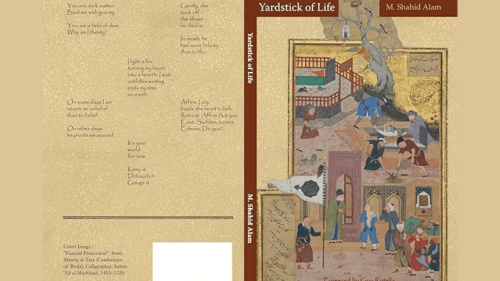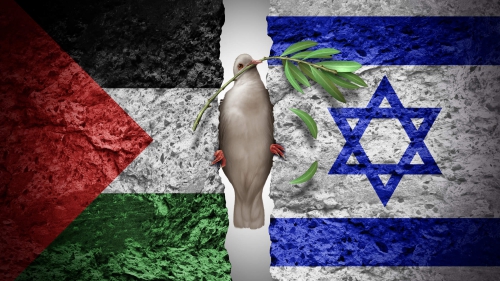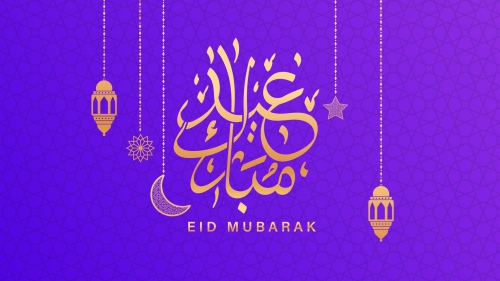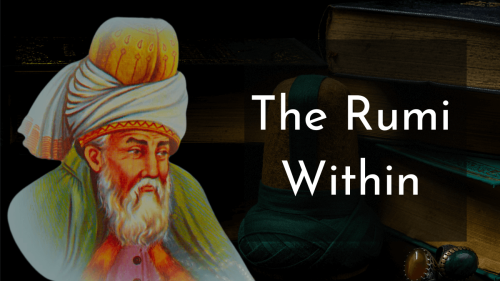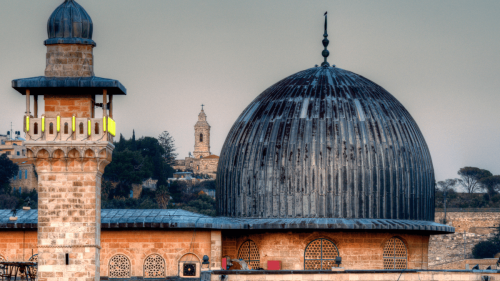He Is Near

723



He is Near.
Closer than my jugular vein near 1Indeed, ˹it is˺ We ˹Who˺ created humankind and ˹fully˺ know what their souls whisper to them, and We are closer to them than ˹their˺ jugular vein. (Quran; 50:16
Yet he asks me to prostrate and draw near 2Rather, ˹continue to˺ prostrate and draw near ˹to Allah˺. (Quran; 96:19
He is Near 3When My servants ask you ˹O Prophet˺ about Me: I am truly near. I respond to one’s prayer when they call upon Me. So let them respond ˹with obedience˺ to Me and believe in Me, perhaps they will be guided to the Right Way. (Quran; 2:186
A name 44 Although not listed among the ninety-nine manes of Allah, Al Qareeb or the Near, as an attribute and as a name, has appeared three times in the Quran: 2:186; 11:61; and 34:50. that says it all.
He introduced Himself, without intermediary, to His servants as Near 5Notice the rush to declare “ I am truly near” in the above quoted verse (2:186). This was not preceded by the order to the prophet to “tell them” that I am truly near. As if the declaration comes from Allah without intermediary (the Prophet) and without delay from adding the extra words “tell them”.
I hear it: “I am Near.”
The thunderous whisper: “I am Near!”
Timeless and urgent. Inaudible; yet so clear.
Can you hear?
Listen, if you want to hear!
What good is silence if you cannot quiet the voices within?
Do not listen with your ears!
With His hearing, seek to listen 6Allah's Messenger ﷺ said, "Allah said, ‘…And the most beloved things with which My servant comes nearer to Me, is what I have enjoined upon him; and My servant keeps on coming closer to Me through voluntary acts of worship till I love him, and when I love him I become his sense of hearing with which he hears, and his sense of sight with which he sees, …". Sahih al-Bukhari 6502 (Book 81, Hadith 91).
Please tell me, can you hear?
To whom was He more near?
To the one called on a celestial journey reaching the utmost boundary7“And he certainly saw him in another descent — At the Lote Tree of the Utmost Boundary — Near it is the Garden of Refuge” (Quran; 53: 13-15)?
Or to the one sombering 8Borrowed from the French verb “sombrer”, which literally means to sink and figuratively means to lose oneself in despair. Both the literal and figurative manifestation apply to the case of Jonah and the whale. in the belly of a whale in the depths of the sea 9“And ˹remember˺ when the Man of the Whale stormed off ˹from his city˺ in a rage, thinking We would not restrain him. Then in the ˹veils of˺ darkness he cried out, “There is no god ˹worthy of worship˺ except You. Glory be to You! I have certainly done wrong.” (Quran; 21:87?
Any difference in how well He could either one of them hear?
You don’t need to utter words for Him to hear 10“Our Lord! You certainly know what we conceal and what we reveal. Nothing on earth or in heaven is hidden from Allah”. (Quran; 14:38!
The softest whisper of a tear is not lost
on the One Who hears
the sound of a creeping black ant on a solid rock in the darkest of nights 11The sound of the ant is an expression found in the classical works of Quranic studies to describe how well Allah can see and hear. Ibn Taymiyah, Al Ghazali and Al Saadi all have referenced it without attribution.
Fearful and hopeful, I call to find him near 12“hence, do not spread corruption on earth after it has been so well ordered. And call unto Him with fear and longing: verily, God'ss grace is ever near unto the doers of good!” (Quran; 7:56
If I don’t call, how will I know He’s here?
But He is with us 13“He is the One Who created the heavens and the earth in six Days, then established Himself on the Throne. He knows whatever goes into the earth and whatever comes out of it, and whatever descends from the sky and whatever ascends into it. And He is with you wherever you are. For Allah is All-Seeing of what you do.” (Quran; 57:4 Do not be sad, He is with us 14“if you do not support him, for Allah did in fact support him when the disbelievers drove him out and he was only one of two. While they both were in the cave, he reassured his companion, “Do not worry, for Allah is certainly with us.” (Quran; 9:40!
Sadness has no place with him Dear 15“So seek your Lord’s forgiveness and turn to Him in repentance. Surely my Lord is Most Merciful, All-Loving”. (Quran: 11:90). One of the Names of Allah is “Al Wadood”, the All-Loving, or Most Loving,.
How I long to be near!
What good is proximity, if to Him, I’m not near?
It starts with Read 16The first verse revealed from the Quran is: “Read, in the Name of your Lord Who created.” (Quran: 96:1). and ends with draw near. 17The last verse from the same chapter is: “prostrate and draw near.” (Quran; 96:16
Forehead to the ground to find Him Near.
Footnotes[+]
| ↑1 | Indeed, ˹it is˺ We ˹Who˺ created humankind and ˹fully˺ know what their souls whisper to them, and We are closer to them than ˹their˺ jugular vein. (Quran; 50:16 |
|---|---|
| ↑2 | Rather, ˹continue to˺ prostrate and draw near ˹to Allah˺. (Quran; 96:19 |
| ↑3 | When My servants ask you ˹O Prophet˺ about Me: I am truly near. I respond to one’s prayer when they call upon Me. So let them respond ˹with obedience˺ to Me and believe in Me, perhaps they will be guided to the Right Way. (Quran; 2:186 |
| ↑4 | 4 Although not listed among the ninety-nine manes of Allah, Al Qareeb or the Near, as an attribute and as a name, has appeared three times in the Quran: 2:186; 11:61; and 34:50. |
| ↑5 | Notice the rush to declare “ I am truly near” in the above quoted verse (2:186). This was not preceded by the order to the prophet to “tell them” that I am truly near. As if the declaration comes from Allah without intermediary (the Prophet) and without delay from adding the extra words “tell them”. |
| ↑6 | Allah's Messenger ﷺ said, "Allah said, ‘…And the most beloved things with which My servant comes nearer to Me, is what I have enjoined upon him; and My servant keeps on coming closer to Me through voluntary acts of worship till I love him, and when I love him I become his sense of hearing with which he hears, and his sense of sight with which he sees, …". Sahih al-Bukhari 6502 (Book 81, Hadith 91). |
| ↑7 | “And he certainly saw him in another descent — At the Lote Tree of the Utmost Boundary — Near it is the Garden of Refuge” (Quran; 53: 13-15) |
| ↑8 | Borrowed from the French verb “sombrer”, which literally means to sink and figuratively means to lose oneself in despair. Both the literal and figurative manifestation apply to the case of Jonah and the whale. |
| ↑9 | “And ˹remember˺ when the Man of the Whale stormed off ˹from his city˺ in a rage, thinking We would not restrain him. Then in the ˹veils of˺ darkness he cried out, “There is no god ˹worthy of worship˺ except You. Glory be to You! I have certainly done wrong.” (Quran; 21:87 |
| ↑10 | “Our Lord! You certainly know what we conceal and what we reveal. Nothing on earth or in heaven is hidden from Allah”. (Quran; 14:38 |
| ↑11 | The sound of the ant is an expression found in the classical works of Quranic studies to describe how well Allah can see and hear. Ibn Taymiyah, Al Ghazali and Al Saadi all have referenced it without attribution. |
| ↑12 | “hence, do not spread corruption on earth after it has been so well ordered. And call unto Him with fear and longing: verily, God'ss grace is ever near unto the doers of good!” (Quran; 7:56 |
| ↑13 | “He is the One Who created the heavens and the earth in six Days, then established Himself on the Throne. He knows whatever goes into the earth and whatever comes out of it, and whatever descends from the sky and whatever ascends into it. And He is with you wherever you are. For Allah is All-Seeing of what you do.” (Quran; 57:4 |
| ↑14 | “if you do not support him, for Allah did in fact support him when the disbelievers drove him out and he was only one of two. While they both were in the cave, he reassured his companion, “Do not worry, for Allah is certainly with us.” (Quran; 9:40 |
| ↑15 | “So seek your Lord’s forgiveness and turn to Him in repentance. Surely my Lord is Most Merciful, All-Loving”. (Quran: 11:90). One of the Names of Allah is “Al Wadood”, the All-Loving, or Most Loving, |
| ↑16 | The first verse revealed from the Quran is: “Read, in the Name of your Lord Who created.” (Quran: 96:1). |
| ↑17 | The last verse from the same chapter is: “prostrate and draw near.” (Quran; 96:16 |
Topics: Allah, Dhikr (Rememberance Of Allah), Iman (Faith And Belief) Channel: Poetry
Views: 723
Related Suggestions
In accordance with Title 17 U.S.C. Section 107, and such (and all) material on this site is distributed without profit to those who have expressed a prior interest in receiving the included information for research and educational purposes.


















